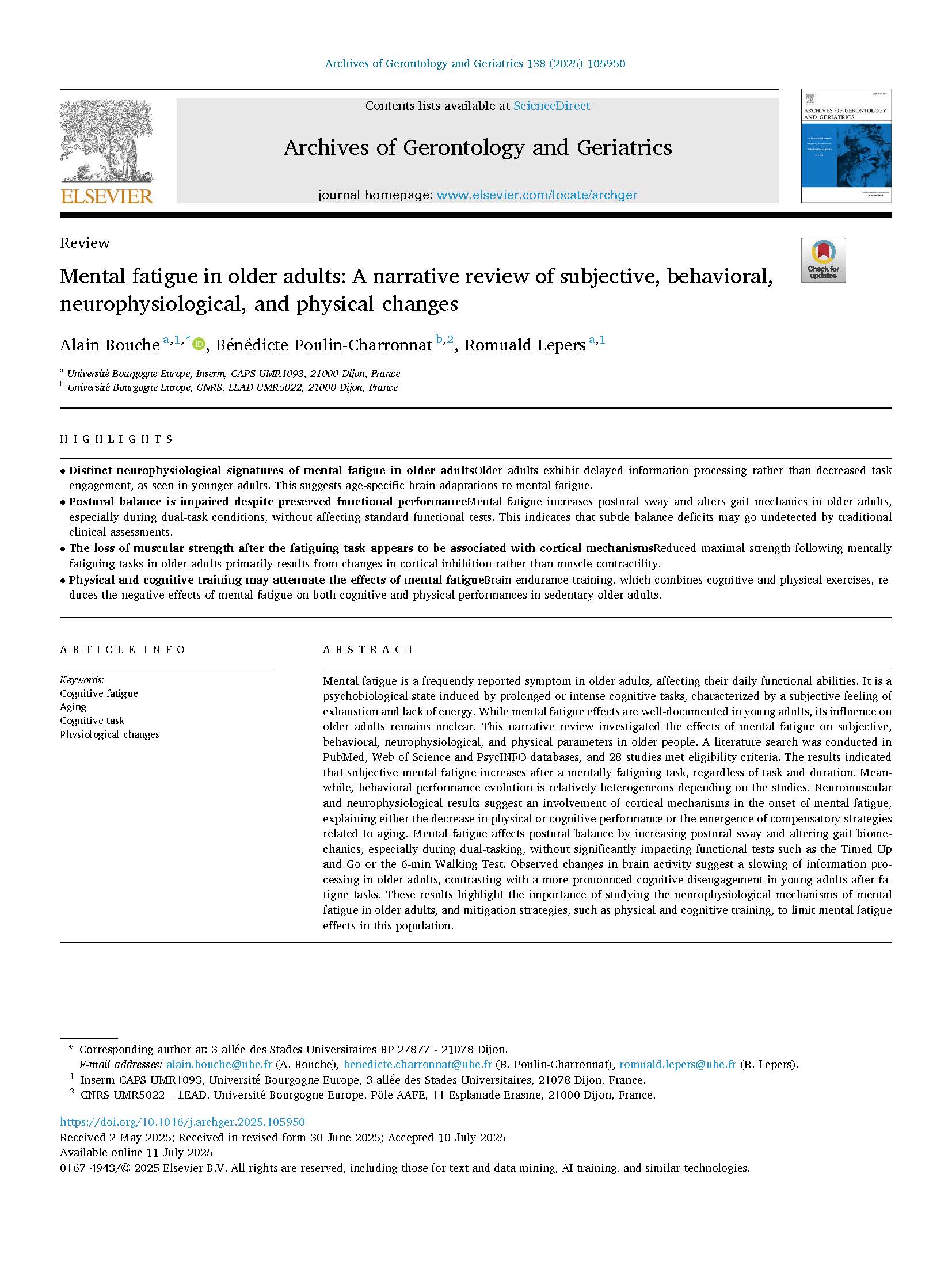Mental fatigue is a frequently reported symptom in older adults, affecting their daily functional abilities. It is a psychobiological state induced by prolonged or intense cognitive tasks, characterized by a subjective feeling of exhaustion and lack of energy. While mental fatigue effects are well-documented in young adults, its influence on older adults remains unclear. This narrative review investigated the effects of mental fatigue on subjective, behavioral, neurophysiological, and physical parameters in older people. A literature search was conducted in PubMed, Web of Science and PsycINFO databases, and 28 studies met eligibility criteria. The results indicated that subjective mental fatigue increases after a mentally fatiguing task, regardless of task and duration. Meanwhile, behavioral performance evolution is relatively heterogeneous depending on the studies. Neuromuscular and neurophysiological results suggest an involvement of cortical mechanisms in the onset of mental fatigue, explaining either the decrease in physical or cognitive performance or the emergence of compensatory strategies related to aging. Mental fatigue affects postural balance by increasing postural sway and altering gait biomechanics,
especially during dual-tasking, without significantly impacting functional tests such as the Timed Up
and Go or the 6-min Walking Test. Observed changes in brain activity suggest a slowing of information processing in older adults, contrasting with a more pronounced cognitive disengagement in young adults after fatigue tasks. These results highlight the importance of studying the neurophysiological mechanisms of mental fatigue in older adults, and mitigation strategies, such as physical and cognitive training, to limit mental fatigue effects in this population.
Mental fatigue in older adults: A narrative review of subjective, behavioral, neurophysiological, and physical changes
